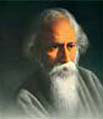 |
| a home away from home |
| HOME FEEDBACK TELL A FRIEND WEB SITE DESIGN CAREER WITH US CONTACT US |
![]() Festivals
Festivals
![]() Durga Puja
Durga Puja
![]() Associations
Associations
![]() Learn
Bangla
Learn
Bangla
![]() Beng.
Marriage
Beng.
Marriage
![]() Art &
Craft
Art &
Craft
![]() Great Indians
Great Indians
![]() Beauty
Care
Beauty
Care
![]() Recipe
Recipe
![]() Astrology
Astrology
![]() Beng.
Section
Beng.
Section
![]() Bengal
Bengal
![]() Calcutta
Calcutta
![]() Beng.
Calendar
Beng.
Calendar
![]() Wallpapers
Wallpapers
![]() Movie
Movie
![]() Music
Music
![]() E-Card
E-Card
![]() Shopping
Shopping
![]() E-Puja Room
E-Puja Room
![]() News
News
![]() E-mail
E-mail
![]() Month's Events
Month's Events
![]() Weather
Weather
![]() Chat
Chat
![]() Education
Education
![]() Join Us
Join Us
![]() Advertise
Advertise
![]() Website links
Website links
![]() Link to us
Link to us
![]() Guest Corner
Guest Corner
![]() Services
Services
![]() WebSite
Design
WebSite
Design

As an author, Tagore mostly worked in Bengali, but subsequent to his achievement with Gitanjali, he translated numerous of his additional workings into English. He wrote over one thousand poems; eight volumes of short stories; approximately two dozen plays and play-lets; eight novels; and many books and essays on philosophy, religion, education and social topics. Tagore wrote eight novels and four novellas, including
Chaturanga, Shesher Kobita,Char Odhay,and Noukadubi. Even though Tagore wrote fruitfully in all fictional genres, he was first of all a poet. In the midst of his fifty and odd volumes of poetry are Manasi (1890) [The Ideal One], Sonar Tari (1894) [The Golden Boat], Gitanjali (1910) [Song Offerings], Gitimalya (1914) [Wreath of Songs], and Balaka (1916) [The Flight of Cranes]
Sideways from language and drama, his supplementary enormous love was music, Bengali style. He composed more than two thousand songs, both the music and lyrics. Two of them became the national anthems of India and Bangladesh. In 1929 he even began painting. In addition these, he wrote melodic dramas, dance dramas, essays of all types, travel diaries, and two
autobiographies. Tagore also left plentiful drawings and paintings, and songs for which he wrote the composition himself. Even though Tagore is an excellent envoy of his nation - India - the man who wrote its national anthem - his existence and workings go far away fromhis country. He is essentially a man of the whole Earth, a product of the most excellent of both conventional Indian, and contemporary Western cultures.
Where the mind is without fear and the head is held high
Where knowledge is free
Where the world has not been broken up into fragments
By narrow domestic walls
Where words come out from the depth of truth
Where tireless striving stretches its arms towards perfection
Where the clear stream of reason has not lost its way
Into the dreary desert sand of dead habit
Where the mind is led forward by thee
Into ever-widening thought and action
Into that heaven of freedom, my Father,
let my country awake
GREAT INDIANS || BENGALI SECTION || BENGALI MARRIAGE || BABY'S NAME || WALLPAPER || BENGAL || WEATHER || TRAVEL
MOBILE WALLPAPER || E-CARD || MOVIE || WEBSITE LINKS || ASSOCIATIONS || SHOPPING || ASTROLOGY || MUSIC || BEAUTY CARE
TIGER || NEWS || GUEST CORNER || FEEDBACK || LINK TO US || FOR ADVERTISING || SERVICES || CONTACT || BENGALI CALENDAR
Graphics, Sound or content copied or produced in part or whole in any media will be illegal.
Persons or websites caught using our material will be penalized.
Privacy Statement || Copyright
Copyright ©1999-2014 BANGALINET.COM